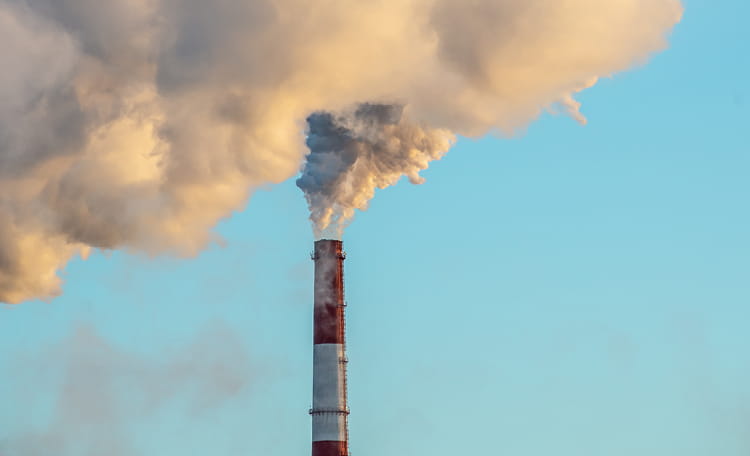World leaders representing governments and industry came together in Glasgow, Scotland for COP26 to address how to achieve targets set as part of the Paris Climate Agreement 20151. The Paris targets—using pre-industrial temperature levels as a baseline—aim to limit the rise in global temperature this century below 2deg Celsius, and to pursue efforts to limit the rise even further to 1.5deg Celsius. Three years after the Paris Agreement, the Intergovernmental Panel on Climate Change (IPCC) special report on 1.5C reinforced the scientific imperative, and earlier this year called a climate ‘code red.’
A report by Climate Action Tracker group (CAT) calculated that, as the COP26 event started, the world was heading for 2.4C of warming by 2100. If no action were taken, scientists believe global warming could exceed 4C in the future. The view of CAT after the agreement is that if all pledges and targets are fully implemented, we would be in a best-case scenario of warming reaching 1.7C by 2100. Their optimistic, very best case still allows for 1.5C if all announced targets are fully achieved, including all net zero targets.
After two weeks, and after several drafts of COP26, the Glasgow Climate Pact External Link has been signed into history and agreed by all 197 countries.
The Main Points
- The signatories express ”alarm and utmost concern that human activities have caused around 1.1C of global warming to date and those impacts are already being felt in all regions”
- Countries were asked to republish their climate action plans by the end of 2022, with more ambitious emissions reductions targets for 2030.
- Why does this matter? Prior to this agreement, countries were only asked to review and set more ambitious targets every five years
- The signatories note ”with concern that the current provision of climate finance for adaptation remains insufficient to respond to worsening climate change impacts in developing country Parties”
- Why does this matter? Prior to this agreement, countries were only asked to review and set more ambitious targets every five years
- There is an emphasis on developed and wealthier nations to increase the funding to those already suffering the effects of climate related change. This increase would be beyond the current $100 billion annual target, which hasn’t yet been achieved but the hope is it will be next year
- Why does this matter? Many of the nations most impacted by the outcomes driven by a changing climate are those that have emitted the least greenhouse gasses and are least able to support themselves financially
- Why does this matter? Many of the nations most impacted by the outcomes driven by a changing climate are those that have emitted the least greenhouse gasses and are least able to support themselves financially
- For the first time ever fossil fuels were mentioned in the agreement
- Why does this matter? Coal is the major contributor to carbon emissions and global warming.
- Although a point of negotiation and apparent agreement during week one, the wording of this portion of the pact was modified over the final weekend to reflect an adjustment of ‘phase out’ to ‘phase down’
- The agreement “calls upon multilateral development banks, other financial institutions and the private sector to enhance financial mobilization … to achieve climate plans, particularly for adaptation … [and to] explore innovative approaches and instruments for mobilizing finance”
- Why does this matter? Finance is one of the biggest concerns, both in terms of how funding is spent on mitigating future climate change and in supporting countries with the changes they have already faced
UN Secretary-General Antonio Guterres said the world must go into “emergency mode” on climate change, as the agreement does not go far enough. However, he acknowledged it establishes “important building blocks for progress” and is a compromise reflecting the “interests, contradictions and state of political will” around the world. Full statement can be viewed here External Link.
Patricia Espinosa, Executive Secretary of the UN Framework Convention on Climate Change, said the 1.5C target was “definitely alive” after the conference. She further commented “It doesn’t fully satisfy everyone, but it brings us forward. It’s a good compromise.”2
Statements, Commitments and Pledges Made Outside of the Main Agreement
- The U.S. and China committed to cooperate in their efforts to maintain 1.5deg warming, and agreed on steps related to methane emissions, the transition to clean energy and de-carbonization. U.S. climate envoy John Kerry and his Chinese counterpart Xie Zhenhua announced the framework agreement
- The International Chamber of Commerce (ICC) put forward The Roadmap and Vision for Industry, Policymakers, and Traders Worldwide. “A new project aimed at aligning on a consistent definition of sustainable trade and trade finance set out what specifically constitutes a sustainable trade transaction, and propose a framework and assessment methodology to qualify trade transactions for this purpose.”3 The key point from the project is to focus the role of global trade on helping business to reduce greenhouse gas emissions
- Rules to create a framework for a global carbon market were also approved4. These rules were originally in the Paris Agreement but have now been validated and will move forward. Progress on these rules allow for a major change and address ways countries can work together to generate deeper emission reductions and produce more ambitious nationally determined contributions (NDCs)
- Trees. Glasgow Leaders’ Declaration on Forests and Land Use5, a key pledge to end and reverse deforestation by 2030, was signed by more than 100 countries, representing 85% of the world’s forests, and importantly includes Brazil and Indonesia. An intention to provide $12 billion for forest-related climate finance between 2021-2025 was also announced6
- Methane. The Global Methane Pledge is a commitment to reduce methane emissions by 30% by 2030 (against a 2020 baseline) was signed by more than 90+ countries, but excludes China, India, and Russia.
- Coal. More than 40 countries—including major coal users including Poland, Vietnam and Chile—agreed to shift away from coal. Coal is the single biggest contributor to climate change. The agreement does not include fossil fuels such as oil and gas, and for now excludes Australia, India, China and the U.S., some of the world’s most coal-dependent nations
- A group of countries, companies and cities has committed to phasing out fossil fuel vehicles by 2040. The Glasgow Declaration on Zero Emission Cars and Vans7 aims for a rapid shift to low-carbon emission vehicles. This group includes Ford, Volvo, GM, Uber and Sainsbury’s.8
- Twenty countries are signing an agreement to divest from fossil fuels overseas from 2022. The New Beyond Oil and Gas Alliance9 requires nations to set an end date for new oil and gas licensing and plans to phase out existing capacity. Notably this agreement excludes the U.S., the UK, Russia, Saudi Arabia, Canada and Norway
- 450 financial organisations, who between them control $130 trillion, agreed to back clean technology, including renewable energy. They also agreed to move their focus and finance away from fossil-fuel burning industries and businesses
- Green Grids Initiative – One Sun One World One Grid. This initiative includes the creation of an interconnected global grid with transmission lines crossing frontiers and borders. Members of the steering committee include Australia, India, the UK, France, and the U.S.10
COP27 will take place in Sharm El Sheikh in Egypt from 7-18 November 2022. The major change countries will now face is that they need to submit nationally determined contributions (NDCs) on an annual basis as opposed to every five years. This will ensure the importance of every single COP is not in doubt, commencing with Egypt next year and subsequently in the United Arab Emirates in 2023.
Initial Implications for Real Estate
- There will be a greater focus on the built environment, regardless of the lack of meaningful output from the regions, cities and built environments day of COP26.
- Although not explicit in the outcomes of COP26, the initial commitment from the UK and Germany to support on developing cities will become more widespread and this will deliver meaningful change.
- The large number of financial organizations backing clean technology creates opportunities for investors looking to secure funding particularly as we aim to drive down both embodied and operational carbon.
- New developments will need to consider the commitment to phase out fossil fuel vehicles. EV charging will be an expectation and the consideration for access to public transport will be even more critical
Overall COP26 was light on direct commitments related to the built environment. The main considerations related to many of the pledges that were made on the periphery of the event will become clearer as we progress toward COP27 in Egypt.
Explore more insights on why Sustainability matters in real estate.





